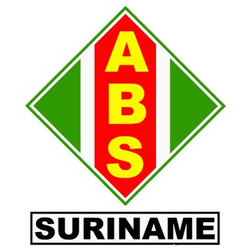Aim of the Business Statistics department
The Business Statistics department was set up with the aim of ensuring the collection of data from enterprises and institutions and keeping a business register. Its tasks also include data processing and data analysis, as well as preparing publications on quarterly and annual economic statistics about wages and prices in the construction industry.
Data collection
With a view to publishing data on wages and prices in the construction industry, on or about the fifteenth day of every month, ABS collects wage data by builder role from construction companies and asks building material stores for their input on the prices of such materials.
With a view to publishing quarterly and annual economic statistics, ABS contacts Businesses on a quarterly basis in the following industries: mining, utilities, trade, hotels and restaurants, transportation, warehousing and communication, banking, insurance and community, social and personal services.
The requested data relates to sales, wages, salaries and social security costs, as well as the number of staff. In addition to these quarterly figures, data is collected every year using a more comprehensive form to compile the national accounts.
Methodology
Data is collected in writing by means of surveys and face to face by having interviews at large enterprises employing 10 or more staff (businesses in the formal sector) in the districts of Paramaribo, Wanica, Saramacca, Para, Nickerie and Commewijne. The aim is to collect data from parent companies rather than from subsidiaries, the reason being that interviewers visiting subsidiaries are referred to the parent companies. Suriname’s national computer centre Cebuma (“Centraal Bureau Mechanische Administratie”) submits monthly reports on the number of civil servants.
The sources used to produce our surveys are the BETEL analyses. The questionnaires are cleaned up and complemented based on observations in the field (e.g. businesses that have ceased operations, people having moved home, etc.)
Business register
It is necessary to maintain an up-to-date business register that can serve as a sampling framework for collecting data for the national accounts, quarterly and annual economic statistics and other purposes. Guidelines used include company databases of ABS, the Chamber of Commerce and Industry, Telesur and other government agencies.
Method used to calculate indices
The number of staff is determined using the method of Laspeyres index.
The base year is 2007. The growth of the respondent companies is determined by sector of industry.
Base year data is extrapolated by sector based on this growth.
Definitions
Company: A company exists when at the initiative of a person, or of several persons working together, products or services are delivered for profit-making or for non-profit making purposes. There are many types of company but there is always an input (such as raw materials in the case of a manufacturing business), a conversion process and an output (finished product). Although each company is unique, there are also certain similarities. These similarities make it possible for companies to be grouped into categories, namely manufacturing companies, service companies and trade companies.
Large companies: companies employing 10 or more staff
Small companies: companies employing fewer than 10 staff
Employee
Employees are persons on the payroll of the relevant companies, including those who are temporarily absent from work because they are on sick leave, holiday or strike. Any staff working fewer than 15 hours a week are excluded from this definition.
Full-time employee: persons working 20 or more hours a week.
Part-time employee: persons working fewer than 20 hours a week.
Turn over
Turn over on an accrual basis: the realised sales value, i.e. the total value of the goods and/or services delivered during a specific period of time.
Turn over on a cash basis: the sum of all revenues for goods and/or services, including the revenues for previously delivered goods and/or services.
Labour costs
Labour costs are the gross amounts of wages and salaries, including allowances, gratuities, bonuses, annual premiums, overtime money, taxes paid for the employee, holiday allowances, wages and salaries that continue to be paid during public holidays and days off, commuting allowances, housing allowances, commissions, holiday pay, the value of payments in kind, premiums of accident and other insurances, pension contributions, contributions to the retirement pension fund, payments of medical expenses and child support by the company, as well as other remunerations not listed above.

